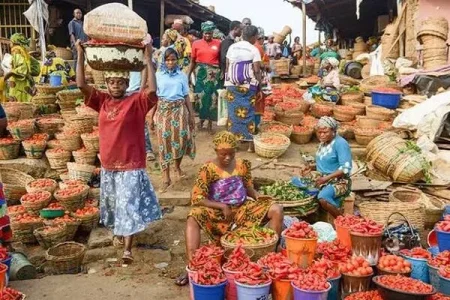
FCT residents struggle with rising food prices, making basic meals unaffordable. Interviews reveal drastic cost increases in staples like beans and yams, with transportation costs driving fluctuations. Market visits confirm soaring prices. Citizens urge government intervention to stabilize prices and ease the economic burden on households.
Residents of the Federal Capital Territory (FCT) are grappling with an escalating food crisis due to surging prices. In interviews with the News Agency of Nigeria (NAN), many expressed their inability to afford basic foodstuffs.
Mrs. Glory Ocholi highlighted that once affordable items like beans and yam have become luxuries. Previously, she bought 10 mudus of white beans for N9,000 to N10,000, but now the price has soared to N28,000. Red beans and other staples have similarly skyrocketed, forcing her to remove certain meals from her family’s diet.
Mr. Habila Makama echoed these concerns, noting that he can no longer buy yam and potatoes, resorting to eating rice daily despite its high cost. A visit to Dutse-Alhaji market revealed that five large tubers of yam now sell for N12,000 to N14,000, while at Karu market, corn and millet prices have jumped from N850-N900 to N1,300 per mudu.
Mallam Bashiru Ahmed, a trader at Karu market, attributed the price hikes to transportation costs from northern states, which have drastically increased due to logistical expenses. He mentioned that prices can fluctuate by 20% or more within a week, affecting both traders and customers. Ahmed urged the government to implement measures to control transportation costs and stabilize market prices.
The report has sparked varied reactions online. Many social media users expressed their frustration, blaming the government for economic mismanagement. Some sarcastically suggested that citizens should resort to farming in urban areas, while others criticized the administration for failing to address the food crisis. The consensus among commenters is a call for urgent government intervention to alleviate the burden on struggling households.



